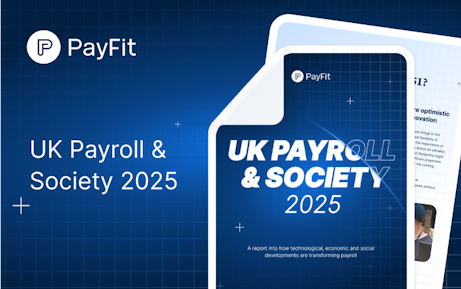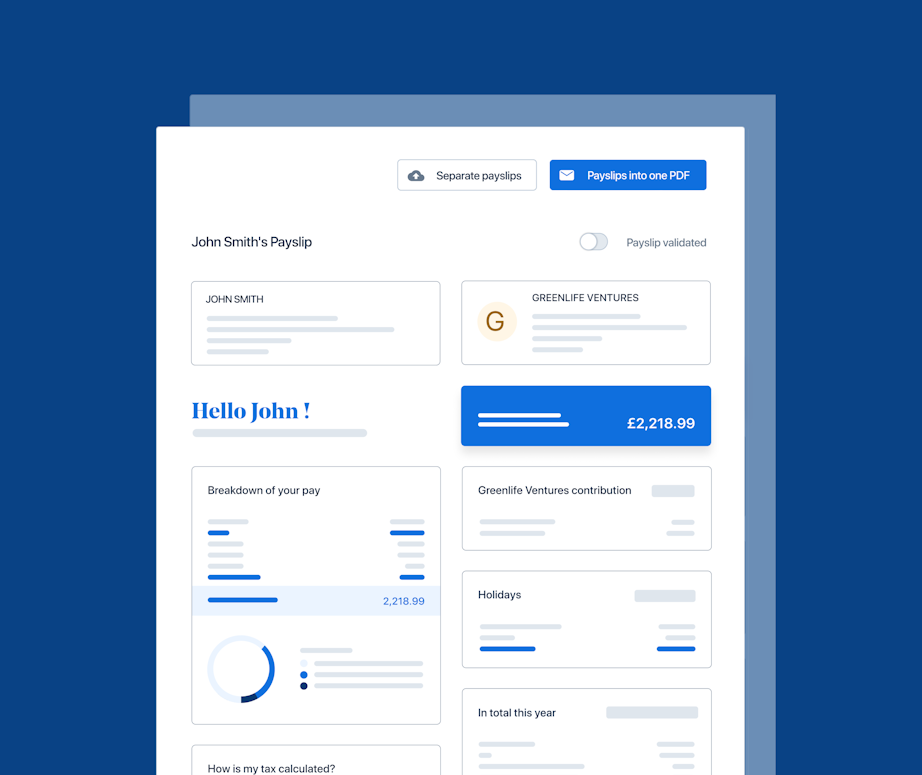Salary Advance Schemes : The Pros & Cons For Your Business

A salary advance allows employees in the UK the option to access some of their earned salary before it’s paid.
It’s a a useful perk that not only benefits employees, but that can also help to attract and retain top talent, especially during tough economic times.
Despite the benefits for both employees and employers, there are things to consider in providing an advance in pay. Let’s review what a salary advance is, as well as the advantages and dissadvatanges that come with it.
What is a salary advance in the UK?
No matter how well your employees budget, there can always be surprises. As the Cost-of-Living crisis continues to bite, advance payments can be particularly useful in helping employees stay on top of their finances. But if not managed correctly they can also be a double-edged sword (we’ll explore this later).
Essentially, a salary advance in the UK is a way of paying your employees part or all of their monthly salary earlier. This can be handy, for instance, if the employee is facing an unexpected cost or emergency or need funds earlier than their payday.
This can normally only be done if you have a scheme set up which involves a salary advance provider. These will typically have a portal or app employees can check into to see how much salary they have available to withdraw.
How does a salary advance typically work?
If the way that a UK salary advance scheme works sounds easy, that’s because it broadly is.
Having said this, there’s a way to go about it. In other words, it isn’t recommended to just pay your employees ad hoc pre-payday amounts and adjust their next payroll accordingly. This can overcomplicate things from a payroll perspective, takes time, and is an error-prone approach. However, certain payroll software providers can account for advances on salary and adjust everything automatically on the next payroll.
Each provider will be different, but here are the general steps involved:
Register with the provider
The first step in initiating any paycheck advance in the UK using the external provider method is to sign up with a suitable partner. You should give your employees access to their own login for the app or portal in question, too.
Access their portal
Through the portal or app, employees will be able to see how much advance on salary is available to take early, the amount being calculated from work already done in that particular pay period. Most only allow staff to take up to a maximum of 50% of their salary for that period, as well as restrict how many times the scheme can be used.
Receive the payment
Once the amount is chosen, the salary advance payment is deposited in the employee’s bank account. Don’t forget about fees; these will normally be deducted (usually £1-2).
What is the difference between a loan and a salary advance?
A salary advance and a payday loan might sound similar but there are some key differences between them:
Repayment timeframe: Whereas the employee is agreeing to receiving some of their pay early in exchange for getting less on their payday, a loan usually involves an agreed-upon repayment period, which could span a few pay cycles
The amount received or loaned: A salary advance is usually less money than a loan, as employees can only borrow the money they’ve already earned, A loan, on the other hand can be much larger as it’s based on factors like credit history and income.
Interest and fees to pay: With salary advances, there’s no interest to pay, although there can be fees. Loans, on the other hand, are subject to a variable interest rate which means there will be more to pay on top of the original amount.

What are the benefits of a salary advance scheme?
The benefits of a salary advance scheme can be felt on both sides of the fence. For one,, it can provide a competitive advantage to employers, as well as financial support and peace of mind to employees.
For employers
Improving the wellbeing and quality of life for employees is a key metric by which HR teams are measured. To this end, offering a salary advance scheme can help tick that box. Not only is it a great way to support and retain existing employees, but can be a great method for attracting new staff at the recruitment stage. Not many companies do this currently, so those that are prepared to do so can gain the edge over competitors in the war for talent.
Improving your employees’ financial resilience through an advance on their salary can help improve productivity and engagement as well, as staff will be less distracted, more engaged, and calmer in the workplace.
For employees
It’s no secret that the Cost-of-Living crisis is hitting people in the pocket, but it’s impacting upon their mental and physical health, too. By offering a salary advance scheme, employers can help alleviate this pressure, and support staff in taking control of their finances a little better. Financial control and improved mental health go hand in hand - and even if staff never use the scheme, being aware of the availability of that safety net can help to improve their mental wellbeing all the same.
And what are the drawbacks?
Doing anything to complicate the often complex payroll process can put a strain on your resources and runs the risk of tax errors being made. This is particularly true if going down the salary advance provider route, however this is negated when managing a scheme via payroll software such as PayFit.
Making unplanned payments to staff, whilst they even out in the next payroll, can impact upon cash flow, especially in small businesses where things are constantly tight.
If working with a salary advance provider and sharing sensitive employee financial information, you run a heightened risk of a data breach, which could permanently impact upon your company’s reputation and mean you incur penalties.
And if looking at it from the employee perspective, becoming reliant on salary advances could actually end up negatively impacting their financial and mental wellbeing, as their pay packets will be lower than usual and this could mean bill, rent or mortgage payments all going out around the same time are impacted.
What employers need to consider when offering advances on salary
Whilst a salary advance scheme is relatively easy to implement, particularly when going down the route of administering it via payroll software and manual bank transfer, there are some things to consider.
UK salary advances are not an FCA-regulated lending product, seeing as they aren’t classed as credit. For the same reason, employer salary advance schemes are also not governed by the Consumer Credit Act 1974.
And if you decide to partner with a salary advance provider, they are required by law to adhere to the Data Protection Act 2018, so you should make yourself aware of the principles by which they will manage sensitive employee data.
Deciding if a salary advance scheme is right for your business
In short, if your business is financially stable with good cash reserves, reliable cash flow and robust processes in place - for example around the management of payroll - then there is little reason to stop you from implementing a scheme.
PayFit can help make salary advances a walk in the part by automatically reflecting them in upcoming payslips, with all tax and deductions also calculated (automatically) as well. PayFit also ensures all that the correct information is reported to HMRC for tax purposes.
Find out what else it can do for your payroll capabilities by booking in a demo with one of our product specialists.
Part Time Workers' Holiday Entitlement - Guide & Calculator

Payroll Numbers Guide: UK Requirements & Best Practices 2025
How Much Does an Employee Cost UK Employers in 2025?







